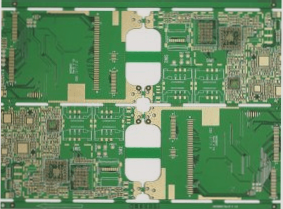**Definition of PCB Copy Board**
PCB copy board, also referred to as circuit board copy board, circuit board clone, circuit board copy, PCB clone, PCB reverse design, or PCB reverse development, has various interpretations within the industry. However, none of these definitions are fully comprehensive. If we were to provide a precise definition of a PCB copy board, we could refer to the authoritative PCB copy board laboratory in China: a PCB copy board involves the reverse research and development of physical electronic products and circuit boards. This means conducting a reverse analysis of the circuit board to recreate the original product’s PCB files, bill of materials (BOM), schematic files, and other technical documentation, including PCB silk screen production files, at a 1:1 ratio. These documents then serve as the basis for PCB manufacturing, component soldering, and flying probe testing.

**Circuit Board Debugging and the Complete Copy of the Original Circuit Board Template**
Since electronic products consist of various types of circuit boards that form the core control component for operation, the PCB copying process can be employed to extract a comprehensive set of technical data from any electronic product, facilitating imitation and cloning.
**Controversial PCB Copy Boards**
Since the inception of PCB copy boards, controversy surrounding them has been ongoing. This industry faces scrutiny in every country, and even legal frameworks often reflect this debate. But what makes the PCB copy board so contentious? Below, we delve into the disputes surrounding PCB copy technology.
**The First Aspect: Technological Controversy of Copying Circuit Boards**
As previously mentioned, defining a copy of a circuit board is not straightforward. There are numerous possible definitions. In the industry, these copying boards are typically referred to as duplications or clones of the circuit. The mere mention of terms like “copying” or “cloning” often evokes thoughts of infringement. Indeed, the essence of copying boards lies in utilizing reverse engineering to replicate circuit boards. Consequently, many individuals express dissatisfaction with this industry, perceiving it as a form of infringement.
**The Second Aspect: Disputes in the Related Fields of Circuit Board Copying**
Today, the burgeoning copy board industry has led to the emergence of companies specializing in PCB duplication. As a result, these copy boards find extensive applications across various fields. Their existence enables many nations to easily access the technologies behind products developed in other countries. Thus, while some countries welcome this technology, others vehemently oppose it.
**The Third Aspect: Legal Disputes**
It is well-known that in legal contexts, any act of infringement is deemed illegal. However, in the laws of many countries worldwide, actions such as PCB copying are not categorized as infringements. This is largely due to the fact that this technology has fostered the growth of numerous industries and nations, rendering prohibition difficult. Consequently, controversies surrounding copy boards persist. Whether from a practical standpoint or within legal frameworks, reverse engineering techniques remain contentious. Nonetheless, despite the ongoing debates regarding technological development, it is clear that this field continues to evolve. Thus, there is reason to believe that PCB copy board technology will advance and establish itself more firmly in the global arena.



